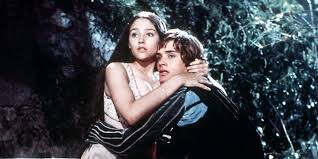Romeo and Juliet: William Shakespeare’s “Romeo and Juliet” is a classic tale of love and tragedy that has captivated audiences for over four centuries. First published in 1597, this play
remains one of Shakespeare’s most performed works and continues to resonate with readers and theatergoers around the world. Its enduring appeal lies in its universal
themes, compelling characters, and the timeless exploration of love and conflict.
The Story
Setting and Conflict: The play is set in the Italian city of Verona, where a long-standing feud between two noble families, the Montagues and the Capulets, serves as the
backdrop. The enmity between these families fuels the drama and sets the stage for the tragic love story.
The Lovers: Romeo Montague and Juliet Capulet, two young members of the rival families, meet by chance at a Capulet party. Despite the animosity between their families,
they fall deeply in love at first sight. Their love blossoms quickly, leading to a secret marriage arranged by Friar Laurence.
Tragic Consequences: The joy of their union is short-lived. A series of violent encounters result in the deaths of Mercutio and Tybalt, leading to Romeo’s banishment from
Verona. In an attempt to reunite with Romeo, Juliet takes a potion that makes her appear dead. However, the plan goes awry, leading to a tragic conclusion where both lovers die, ultimately reconciling their feuding families.
Realted news, watch this video: https://www.youtube.com/watch?v=lyHMOVaF0WM
Themes
Love vs. Conflict: At its core, “Romeo and Juliet” is a study of the power of love in the face of hatred. The intense, youthful love between Romeo and Juliet contrasts sharply
with the violent feud between their families. Their love is portrayed as pure and all-consuming, but also rash and impetuous.
Fate and Destiny: The concept of fate looms large over the narrative. From the opening prologue, where the lovers are described as “star-crossed,” to the series of unfortunate
events that lead to their deaths, the play suggests that their destiny is preordained and inescapable.
Youth and Impulsivity: Romeo and Juliet’s youth is central to the play’s drama. Their impulsive decisions and intense emotions drive the plot forward and underscore the
play’s exploration of youthful passion and its consequences.
The Role of Family
The destructive power of familial loyalty and the impact of generational conflict are critical to understanding the play’s tragedy. The feud between the Montagues and
Capulets symbolize the broader societal and familial pressures that shape the characters’ lives and choices.
Characters
Romeo: A passionate and romantic young man, Romeo falls in love with Juliet at first sight. His impulsiveness and intense emotions often lead him to make rash decisions,
contributing to the tragic events.
Juliet: Equally passionate, Juliet is also practical and determined. Her love for Romeo compels her to defy her family’s expectations and societal norms. Her character evolves
from a naive girl to a strong-willed woman willing to take drastic measures for her love.
Friar Laurence: A well-meaning priest who aids the lovers, Friar Laurence represents a voice of reason and hope. However, his plans inadvertently contribute to the tragic outcome,
highlighting the unintended consequences of good intentions.
Mercutio and Tybalt: Mercutio, Romeo’s witty and fiery friend, and Tybalt, Juliet’s hot-headed cousin, embody the reckless and violent spirit of the feud. Their deaths escalate
the conflict and set the stage for the ensuing tragedy.
“Romeo and Juliet” has had a profound impact on literature and popular culture. Its themes and characters have inspired countless adaptations in various forms:
Film
Notable film adaptations include Franco Zeffirelli’s 1968 version, known for its faithful portrayal, and Baz Luhrmann’s 1996 modernized interpretation, which brought the
story to a contemporary audience with a fresh visual style.
Ballet: Sergei Prokofiev’s ballet “Romeo and Juliet” is celebrated for its powerful music and choreography, capturing the emotional intensity of the play.
Opera: The story has been adapted into operas, such as Charles Gounod’s “Roméo et Juliette” and Vincenzo Bellini’s “I Capuleti e i Montecchi,” each bringing a new dimension
to the tragic romance.
“Romeo and Juliet” remains a timeless exploration of love, fate, and the human condition. Shakespeare’s masterful storytelling and richly developed characters continue to
resonate with audiences, ensuring that this classic tragedy will be cherished and studied for generations to come.
Read more: https://placesandlifestyle.com/capital-city-of-rwanda-kigali/




